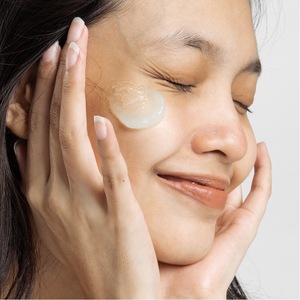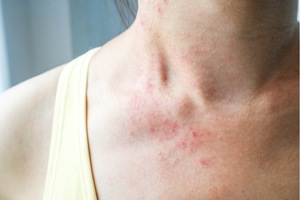Beat Eczema Skin Problems Now
 Beat Eczema Skin Problems Now-
Beat Eczema Skin Problems Now-
Effective Eczema Treatment Solutions :
What is Eczema?
Eczema is a skin condition that affects millions of people worldwide. It is a chronic condition that causes inflammation, itching, and redness of the skin. Although eczema is not a life-threatening condition, it can be uncomfortable and embarrassing, especially when it affects visible areas of the body. There is no known cure for eczema, but there are ways to manage the symptoms and prevent flare-ups. So here is some helpful guidance into how you can beat Eczema skin problems now.
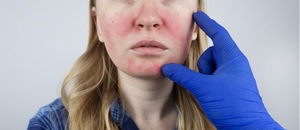 Many people with eczema rely on prescription medications and over-the-counter creams to manage their symptoms. However, these treatments only provide temporary relief and do not address the root cause of the condition. In this article, we will explore natural remedies and lifestyle changes that can help cure eczema permanently. These methods are safe, effective, and can provide long-lasting relief from eczema symptoms. By following these tips, individuals with eczema can improve their overall quality of life and achieve clear, healthy skin.
Many people with eczema rely on prescription medications and over-the-counter creams to manage their symptoms. However, these treatments only provide temporary relief and do not address the root cause of the condition. In this article, we will explore natural remedies and lifestyle changes that can help cure eczema permanently. These methods are safe, effective, and can provide long-lasting relief from eczema symptoms. By following these tips, individuals with eczema can improve their overall quality of life and achieve clear, healthy skin.
RELATED ARTICLE: How To Manage or Prevent Psoriasis
Types of Eczema
There are several types of eczema, each with its own unique symptoms and triggers. The most common types of eczema include:
- Atopic dermatitis: This is the most common type of eczema, and it usually starts in childhood. It is characterized by dry, itchy, and inflamed skin that can be red and scaly.
- Contact dermatitis: This type of eczema is caused by contact with an irritant or allergen. It can be either allergic or irritant and can cause redness, itching, and blisters.
- Nummular eczema: This type of eczema is characterized by round, coin-shaped patches of dry, itchy skin that can be very painful.
- Seborrheic dermatitis: This type of eczema affects the scalp and causes red, itchy, and flaky skin. It is also known as dandruff.
Is Eczema Contagious?
No, eczema is not contagious. It is not caused by a virus or bacteria, and it can’t be spread from person to person.
Is Eczema an Autoimmune Disease?
Eczema is not an autoimmune disease. It is a chronic skin condition that is caused by a combination of genetic and environmental factors. However, people with eczema may be more likely to develop other autoimmune diseases, such as asthma and hay fever.
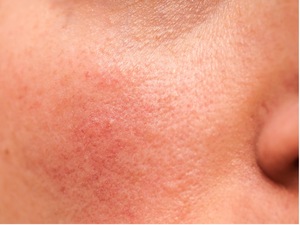
Beat Eczema Skin Problems Now:
Eczema Causes and Triggers
Eczema, also known as atopic dermatitis, is a chronic skin condition that affects millions of people worldwide.
What Causes Eczema?
While the exact cause of eczema is still unknown, researchers believe that it is a combination of genetics, environmental factors, and food allergies.
Genetics
Genetics play a significant role in the development of eczema. If one or both parents have eczema, the child is more likely to develop the condition. Studies have shown that certain genes are associated with eczema, and individuals with these genes are more susceptible to the condition.
Environmental Factors
Environmental factors also contribute to the development of eczema. Factors such as dry air, low humidity, exposure to irritants, and stress can trigger eczema flare-ups. Other environmental factors that can trigger eczema include:
- Allergens such as dust mites, pet dander, and pollen
- Harsh soaps and detergents
- Chemicals found in cleaning products
- Smoke and pollution
Food Allergies
 Food allergies can also trigger eczema flare-ups in some people. Common food allergens that can trigger eczema include dairy, eggs, soy, wheat, and nuts. If you suspect that a food allergy is triggering your eczema, it is important to consult with a healthcare provider to determine the best course of action.
Food allergies can also trigger eczema flare-ups in some people. Common food allergens that can trigger eczema include dairy, eggs, soy, wheat, and nuts. If you suspect that a food allergy is triggering your eczema, it is important to consult with a healthcare provider to determine the best course of action.
In conclusion, while the exact cause of eczema is still unknown, researchers believe that genetics, environmental factors, and food allergies all play a role in the development of the condition. By identifying and avoiding triggers, individuals with eczema can manage their symptoms and improve their quality of life.
Beat Eczema Skin Problems Now:
Symptoms of Eczema
Eczema is a skin condition that can cause discomfort and irritation. It is important to recognize the symptoms of eczema in order to manage the condition effectively. This section will cover the common symptoms of eczema, as well as symptoms that occur in specific areas of the body.
Common Symptoms
The most common symptoms of eczema include:
- Dry, itchy skin
- Redness and inflammation
- Swelling
- Cracking and peeling skin
- Blistering
- Oozing or crusting
These symptoms can occur anywhere on the body, but are most commonly found on the hands, feet, face, and neck. In some cases, eczema can be accompanied by other symptoms such as fever, fatigue, and swollen lymph nodes.
Symptoms in Specific Areas
Eczema can also cause symptoms that are specific to certain areas of the body. Here are some examples:
Breast Eczema
Breast eczema is a type of eczema that occurs on the breasts or under the breasts. Symptoms may include:
- Itching and burning
- Redness and inflammation
- Dry, scaly skin
- Cracking and bleeding
- Pain and tenderness
Breast eczema can be caused by a variety of factors, including allergies, irritants, and hormonal changes.
RELATED ARTICLE: Women’s Breast Health Information
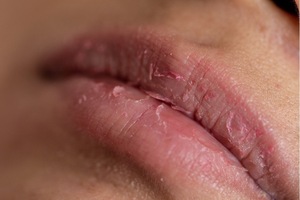 Lip Eczema
Lip Eczema
- Dry, chapped lips
- Redness and inflammation
- Itching and burning
- Cracking and peeling
- Swelling
Lip eczema can be caused by a variety of factors, including allergies, irritants, and certain medical conditions.
Penile Eczema
Penile eczema is a type of eczema that occurs on the penis. Symptoms may include:
- Itching and burning
- Redness and inflammation
- Dry, scaly skin
- Cracking and bleeding
- Pain and discomfort
Penile eczema can be caused by a variety of factors, including allergies, irritants, and certain medical conditions.
In conclusion, eczema can cause a variety of symptoms that can be uncomfortable and irritating. It is important to recognize these symptoms in order to manage the condition effectively.
How Do You Beat Eczema Skin Problems Now – in the US?
Diagnosing Eczema
Diagnosing eczema involves a physical examination of the skin and a thorough review of the patient’s medical history. A dermatologist may also perform a skin biopsy to rule out other skin conditions. In some cases, an allergist may perform patch testing to identify any potential allergens that may be triggering eczema flare-ups.

Conventional Treatments
Conventional treatment for eczema typically involves the use of topical corticosteroids to reduce inflammation and relieve itching. In more severe cases, oral corticosteroids or immunosuppressant medications may be prescribed. Moisturizers and emollients can also be used to help soothe and hydrate the skin.
One popular brand of over-the-counter eczema treatment is Eucerin Eczema Relief Cream. This cream contains colloidal oatmeal and ceramide-3 to help relieve itching and irritation, and restore the skin’s natural barrier function.
Alternative Treatments
Alternative treatments for eczema include natural remedies, such as coconut oil, tea tree oil, and aloe vera. Probiotics and omega-3 supplements have also been shown to help reduce inflammation and improve skin health. Stress management techniques, such as meditation and yoga, may also be helpful in managing eczema symptoms.
It is important to note that while alternative treatments may provide some relief, they should not be used as a substitute for conventional medical treatment. Patients should always consult with a healthcare professional before trying any new treatment or supplement.
How Do Beat Eczema Skin Problems Permanently?
Eczema is a chronic skin condition that can be challenging to manage and impossible to cure permanently. While there is no permanent cure for eczema, there are steps that can be taken to prevent eczema flare-ups and reduce symptoms. In this section, we will discuss some lifestyle and dietary changes that can help prevent eczema.
Lifestyle Changes to Beat Eczema Skin Problems Now
Making lifestyle changes can help reduce the frequency and severity of eczema flare-ups. Here are some tips:
- Avoid harsh soaps and detergents. Use mild, fragrance-free products instead.
- Keep skin moisturized. Apply moisturizer regularly to prevent dryness and itching.
- Wear loose-fitting, cotton clothing. Tight clothing can irritate the skin and worsen eczema.
- Avoid scratching. Scratching can damage the skin and lead to infection.
- Manage stress. Stress can trigger eczema flare-ups, so it’s important to find ways to manage stress.
Dietary Changes
Dietary changes can also play a role in preventing eczema. Some foods can trigger eczema flare-ups, while others can help reduce inflammation. Here are some tips:
- Avoid common food allergens. Some people with eczema are sensitive to certain foods, such as milk, eggs, wheat, and soy. Avoiding these foods may help prevent eczema flare-ups.
- Eat anti-inflammatory foods. Foods that are rich in omega-3 fatty acids, such as salmon, walnuts, and flaxseed, can help reduce inflammation in the body.
- Stay hydrated. Drinking plenty of water can help keep the skin hydrated and prevent dryness.
By making these lifestyle and dietary changes, individuals with eczema can help prevent flare-ups and manage their symptoms. It’s important to remember that eczema is a chronic condition, and there is no one-size-fits-all solution. If symptoms persist, it’s important to consult a healthcare provider for further treatment options.
RELATED ARTICLE: How To Treat Anxiety Disorders
Managing Eczema Flare-ups
Eczema flare-ups can be uncomfortable and frustrating, but there are ways to manage them. In this section, we’ll discuss some at-home remedies and medical treatments that can help alleviate symptoms.
At-Home Remedies for Eczema
There are several home remedies that can help manage eczema flare-ups. These remedies include:
- Moisturizing regularly: Keeping the skin moisturized can help prevent dryness and itching. Use a fragrance-free moisturizer after showering or bathing to lock in moisture.
- Avoiding triggers: Triggers such as stress, certain foods, and harsh detergents can cause eczema flare-ups. Identify your triggers and try to avoid them.
- Taking lukewarm baths: Hot water can dry out the skin and worsen eczema symptoms. Take lukewarm baths instead and avoid using harsh soaps or bubble baths.
- Using natural remedies: Some natural remedies such as aloe vera gel and honey can help soothe eczema symptoms. However, it’s important to talk to a doctor before trying any new remedies.
Medical Treatments to Beat Eczema Skin Problems Now
In addition to at-home remedies, there are medical treatments that can help manage eczema flare-ups. These treatments include:
- Topical steroids: Topical steroids are creams or ointments that can help reduce inflammation and itching. They should be used as directed by a doctor.
- Oral antihistamines: Oral antihistamines can help relieve itching and reduce inflammation. They should be used as directed by a doctor.
- Phototherapy: Phototherapy involves exposing the skin to specific wavelengths of light to reduce inflammation. It should be done under the supervision of a doctor.
- Immunosuppressants: Immunosuppressants are medications that can help reduce inflammation by suppressing the immune system. They should be used as directed by a doctor.
It’s important to talk to a doctor about the best treatment options for your specific case of eczema. With proper management, eczema flare-ups can be minimized and symptoms can be relieved.
Conclusion – How to Beat Eczema Skin Problems Now
Eczema is a chronic skin condition that affects millions of people worldwide. While there is currently no known cure for eczema, there are many effective treatments available that can help manage symptoms and prevent flare-ups.
In order to cure eczema permanently, it is important to understand the underlying causes of the condition. This may involve working with a dermatologist or other healthcare professional to identify triggers, such as certain foods or environmental factors.
Lifestyle Changes to Beat Eczema Skin Problems
In addition to avoiding triggers, there are many lifestyle changes that can help manage eczema symptoms. These may include using gentle, fragrance-free skincare products, avoiding hot showers, and wearing comfortable, breathable clothing.
There are also many topical treatments available for eczema, such as corticosteroid creams, that can help reduce inflammation and itching. For more severe cases of eczema, phototherapy or systemic medications may be recommended.
 While there is no guaranteed cure for eczema, with the right treatment and management strategies, it is possible to live a comfortable and fulfilling life with this condition. It is important to work closely with a healthcare professional to develop an individualized treatment plan that meets your specific needs and goals.
While there is no guaranteed cure for eczema, with the right treatment and management strategies, it is possible to live a comfortable and fulfilling life with this condition. It is important to work closely with a healthcare professional to develop an individualized treatment plan that meets your specific needs and goals.
Frequently Asked Questions
What are some effective home remedies for eczema?
There are several home remedies that can help alleviate eczema symptoms. Some of the most effective ones include taking warm oatmeal baths, applying coconut oil or aloe vera gel to the affected areas, using a humidifier to add moisture to the air, and avoiding harsh soaps and detergents.
What are the best eczema treatment creams available?
There are many eczema treatment creams available, but some of the best ones include hydrocortisone cream, which is available over-the-counter, and prescription-strength creams like tacrolimus and pimecrolimus. It is important to consult with a healthcare provider before using any new creams or medications.
What are some common triggers for eczema?
Some common triggers for eczema include stress, dry skin, exposure to irritants like soaps and detergents, changes in temperature or humidity, and certain foods or allergens. Identifying and avoiding triggers can help prevent eczema flare-ups.
How can I stop eczema itching immediately?
To stop eczema itching immediately, try applying a cold, wet compress to the affected area, taking an antihistamine, or using a topical anti-itch cream. It is important to avoid scratching the affected area, as this can worsen symptoms.
What are some natural ways to cure eczema?
Some natural remedies that may help cure eczema include using chamomile tea compresses, taking probiotics, and consuming omega-3 fatty acids. However, it is important to note that natural remedies may not work for everyone, and it is important to consult with a healthcare provider before trying any new treatments.
Is it possible to fully cure eczema?
While there is no known cure for eczema, it is possible to manage symptoms and prevent flare-ups through proper treatment and management. This may include using prescription-strength creams or medications, identifying and avoiding triggers, and maintaining a regular skincare routine.

